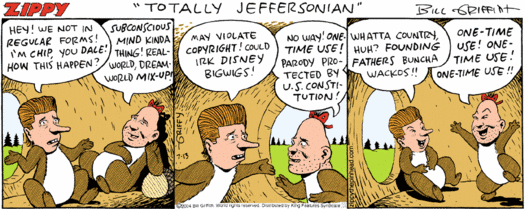Although I’ve always understood that there’s a link between digital rights management (or DRM) and product lock-in, it really hit home for me today.
For those of you who are unfamiliar with the concept of Digital Rights Management: there are a variety of DRM schemes, but basically the point is to restrict what you can do with files that reside on your computer. For example, when you purchase tracks from iTunes· or Napster·, they are encrypted in such a way that you should only be able to play those tracks on the machine you purchased them with. (A Norwegian programmer has cracked the iTunes DRM scheme, however.·).
Now obviously this causes some inconvenience if you change computers frequently, or if you want to listen to your music on many different devices. In fact, as a side effect of iTune’s DRM scheme, you might purchase tracks, move to Canada, and then be unable to listen to them at all·.
But the more insidious problem is the lack of interoperability. Here’s an example from the “real world”:
My family is having an 80th birthday party for my grandmother next week. We’re renting an LCD projector and are planning on having a fancy slideshow with a soundtrack of popular showtunes to accompany photographs from the past 80 years. So my family members, thinking it would be easy, purchased a bunch of tracks on Napster and iTunes for the slideshow.
The slideshow program, however, only knows how to play MP3 or WAV files. Since the Napster and iTunes tracks are encrypted and protected with DRM, there’s no way to convert them to MP3. Too bad for us.
Presumably there is other proprietary slideshow software that is built to work with the Apple and Microsoft DRM music schemes. So if you want to purchase music online and have it accompany your photo slideshow, you’re going to have to pick the approved products. It gets even worse since many of these schemes are covered by patents, and any software or hardware maker that wants to implement it has to pay a licensing fee—and the patent owner could simply refuse to license the patent to competing entities.
Sometimes it’s hard to explain to normal people what the problem is with DRM. I think this is a perfect example of ordinary people experiencing lock-in and considerable trouble while trying to take advantage of what should be the ultraconvenience of digital media.
Is it any wonder that consumers might prefer file sharing on peer-to-peer networks—which costs nothing—to purchasing expensive media encumbered with DRM?
